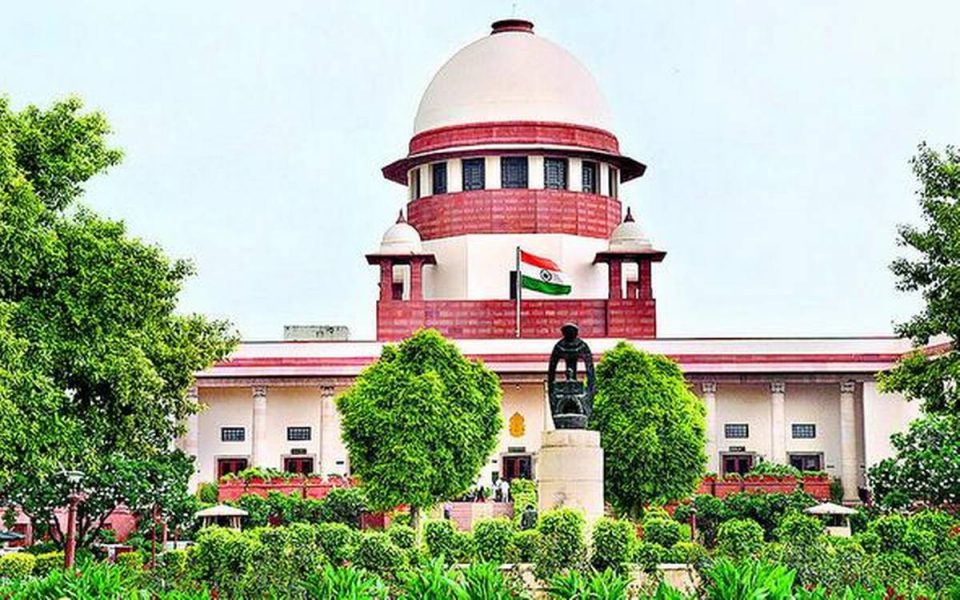
EPFO pension scheme: What the Supreme Court ruling says

In a significant ruling on Friday, the Supreme Court upheld the Employees’ Pension (Amendment) Scheme (EPS), 2014 as “legal and valid” while reading down certain provisions.
The court allowed another opportunity to members of the Employees’ Provident Fund Organisation (EPFO), who have availed of the EPS, to opt for higher annuity over the next four months. Existing EPS members, as on September 1, 2014, can contribute up to 8.33 per cent of their ‘actual’ salaries — as against 8.33 per cent of the pensionable salary capped at Rs 15,000 a month — towards pension.
Also read: EPFO launches face authentication for pensioners to submit digital life certificates
Provisions read down
The court, however, read down certain provisions concerning the current subscribers to the scheme.
The requirement to contribute additional 1.16 per cent of the salary to the extent that such salary exceeds Rs 15,000 per month was held to be ultra vires to the provisions of the Employees’ Provident Funds and Miscellaneous Provisions Act, 1952. The court suspended the implementation of this part for six months.
“Since the (1952) Act does not contemplate any contribution to be made by an employee to remain in the scheme, the Central Government under the scheme itself cannot mandate such a stipulation,” the Supreme Court said. Even if the government wanted to, it could only have done this by way of a legislative amendment, it said.
This would essentially mean higher annuity after retirement. Experts said that in times of higher inflation and actual salaries having risen way much beyond the pensionable salary cap of Rs 15,000, this would provide a better social security cover for workers after retirement, according to an Indian Express report.
A three-judge bench of Chief Justice of India UU Lalit and Justices Aniruddha Bose and Sudhanshu Dhulia said the amendments to the scheme shall apply to employees of exempted establishments as they do for the employees of regular establishments. There are about 1,300 companies in the list of the EPFO’s exempted establishments.
This means that EPFO members, who have availed of the EPS, get another opportunity over the next four months to opt and contribute up to 8.33 per cent of their actual salaries – as against 8.33 per cent of the pensionable salary capped at Rs 15,000 a month – towards pension. The court extended the time by using its powers under Article 142 of the Constitution.
Also read: Hate speeches sullying country’s atmosphere: Supreme Court
Amendments over the years
In 1995, an amendment to the Employees’ Provident Funds and Miscellaneous Provisions Act, 1952, formulated a scheme under which the pension fund was to comprise a deposit of 8.33 per cent of the employers’ contribution to be made towards provident fund corpus. At that point, maximum pensionable salary was Rs 5,000 per month which was later raised to Rs 6,500.
In 2014, an EPS amendment raised the pensionable salary cap to Rs 15,000 a month from earlier Rs 6.500 and allowed members and their employers to contribute 8.33 per cent on their actual salaries (if it exceeded the cap) towards the EPS. It gave all EPS members, as on September 1, 2014, six months to opt for the amended scheme. This was extendable by another six months at the discretion of the Regional Provident Fund Commissioner.
The amendment, however, required such members to contribute an additional 1.16 per cent of their salary exceeding Rs 15,000 a month towards the pension fund.
The Supreme Court has held this ultra vires.
Also watch: Hijab case: Supreme Court delivers split verdict
Earlier HC decisions
The issue had been adjudicated by various high courts earlier. The Kerala High Court in 2018 had set aside the EPS (Amendment) Scheme, 2014 and the Delhi High Court in 2019 agreed with the Kerala HC view and quashed a circular issued by the provident fund authorities on May 31, 2017, precluding exempted establishments from the benefits of higher pension. In 2019 again, the Rajasthan High Court also expressed the same opinion.


